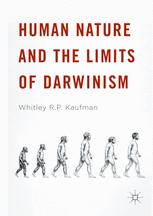

Most ebook files are in PDF format, so you can easily read them using various software such as Foxit Reader or directly on the Google Chrome browser.
Some ebook files are released by publishers in other formats such as .awz, .mobi, .epub, .fb2, etc. You may need to install specific software to read these formats on mobile/PC, such as Calibre.
Please read the tutorial at this link: https://ebookbell.com/faq
We offer FREE conversion to the popular formats you request; however, this may take some time. Therefore, right after payment, please email us, and we will try to provide the service as quickly as possible.
For some exceptional file formats or broken links (if any), please refrain from opening any disputes. Instead, email us first, and we will try to assist within a maximum of 6 hours.
EbookBell Team

4.4
12 reviewsThis book compares two competing theories of human nature: the more traditional theory espoused in different forms by centuries of western philosophy and the newer, Darwinian model. In the traditional view, the human being is a hybrid being, with a lower, animal nature and a higher, rational or “spiritual” component. The competing Darwinian account does away with the idea of a higher nature and attempts to provide a complete reduction of human nature to the evolutionary goals of survival and reproduction. Whitley Kaufman presents the case that the traditional conception, regardless of one's religious views or other beliefs, provides a superior account of human nature and culture. We are animals, but we are also rational animals.
Kaufman explores the most fundamental philosophical questions as they relate to this debate over human nature—for example: Is free will an illusion? Is morality a product of evolution, with no objective basis? Is reason merely a tool for promoting reproductive success? Is art an adaptation for attracting mates? Is there any higher meaning or purpose to human life? Human Nature and the Limits of Darwinism aims to assess the competing views of human nature and present a clear account of the issues on this most pressing of questions. It engages in a close analysis of the numerous recent attempts to explain all human aims in terms of Darwinian processes and presents the arguments in support of the traditional conception of human nature.